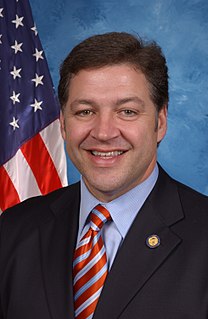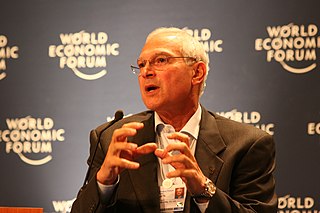A Quote by Alex Berenson
Macroeconomics is the analysis of the economy as a whole, an examination of overall supply and demand. At the broadest level, macroeconomists want to understand why some countries grow faster than others and which government policies can help growth.
Related Quotes
Peter Montiel has long set the highest standard for lucid textbooks on the macroeconomics of developing countries. Now in this new edition of his superb classic Macroeconomics in Emerging Markets, he has surpassed even himself. He uniquely fills the gap between rich-country-obsessed macro- and micro-obsessed developing-country analysis. No student of the macroeconomics of development will henceforward be able to do without this book.
As long as we're focused on spending, there are only two ways to do that: One is spend less, and Democrats have no solutions for that. Or we have pro-growth policies that make the economy grow so the dead-weight cost of government becomes a smaller percentage of the economy and therefore less expensive.
Over the longer term, China will grow by about 6% or 7% per year. The Chinese authorities usually react pretty quickly to unfolding economic events, and you've seen them recently change a whole bunch of policies to be more conducive to growth. They have the power and capability to macromanage the economy - to accomplish their growth objectives - which means they're pretty much going to come close to what they say is going to happen.
Criticism of growth arose with the discovery that growth beyond a certain point is destructive of the earth. We are already using resources much faster than they can be replenished. We are producing wastes much faster than nature's sinks can process them. The growth economy will end. The only questions are when its end will come, and whether humanity will be able to survive its demise.
Government is taking 40 percent of the GDP. And that's at the state, local and federal level. President Obama has taken government spending at the federal level from 20 percent to 25 percent. Look, at some point, you cease being a free economy, and you become a government economy. And we've got to stop that.
The analysis in the era of Ronald Reagan and Margaret Thatcher was that government was interfering with the efficiency of the economy through protectionism, government subsidies, and government ownership. Once the government "got out of the way," private markets would allocate resources efficiently and generate robust growth. Development would simply come.
My advice would be, as you consider fiscal policies, to keep in mind and look carefully at the impact those policies are likely to have on the economy's productive capacity, on productivity growth, and to the maximum extent possible, choose policies that would improve that long-run growth and productivity outlook.


































